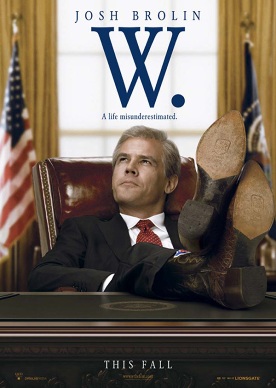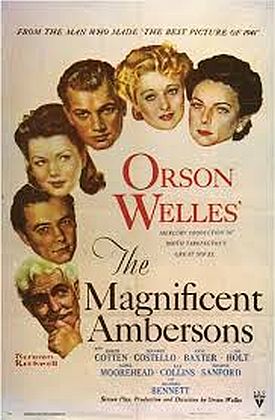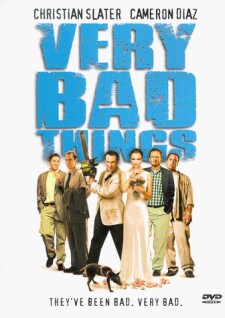W.
Journalists love clichés for the same reason that Homer loves his epithets. Like the wine-dark sea or the rosy-fingered dawn, the now-famous and endlessly repeated failures and buffooneries of the Bush administration add a sort of mass and solidity to the narration of passing events that would otherwise seem ephemeral and elusive. In Homer, the epithets connect one event with another for as far back as there have been events, and thus they anchor the present in the past and in the human condition. In the on-going media narrative of contemporary history, the product of many hands and tongues working in concert to a single end, the repetition, expressed or implied, of the familiar Bushite tropes connects the new narrative with that sense of communal enjoyment which nowadays takes the place of truth. We may be agnostic about truth, but we’re true believers when it comes to the contemporary myths of the media. The other day I heard a radio news announcer refer to the electorate’s reaction against “the failures of the Bush administration” in sublime unconsciousness that these could have been anything but simple matters of fact.
Of course, the Homeric comparison is way too generous to journalists, who seldom prove capable of achieving genuinely Homeric effects. But they do have one thing in common with the bard who composed for oral delivery, namely that they have the problem of making the new seem familiar in a hurry, before the audience has to move on to something else. A more appropriate comparison would perhaps be the wild enthusiasm with which audiences at pop concerts commonly greet the first chords of their old favorites, which were hits many years ago but are still expected and beloved by those who are prepared to pay to come out and see the band.
Oliver Stone has fashioned W., his would-be epic of George W. Bush, almost entirely out of clichés, using as many journalistic commonplaces as possible in order to create a kind of rhythmic effect while letting us know that we need fear nothing new or difficult in the psychodrama he has invented out of his sensation-seeking fancy. You name it, here it is, from “misunderestimated” to “Mission Accomplished,” from “is our children learning” to the famous choking-on-a pretzel incident. And everything is made to fit in perfectly with the Oedipal charade, entirely fabricated out of Stone, which is enacted between Bush 41 (Josh Brolin) and Bush 43 (James Cromwell). And yet, ultimately, Mr Stone is unable to make his Oedipus interesting — even to himself.
That’s why, presumably, he abandons the Oedipus story periodically to take this chaotic movie in some completely other direction. At one point, for instance, it becomes The Lamentable Tragedie of Colin Powell, a sort of Faust figure who knew The Truth all along — and therefore, presumably, that the man he had sworn to serve was leading him the primrose way to the everlasting bonfire — and yet who, at the moment when it was still possible for him to take another way, when Bushistofeles asks him, “Are you with us, Colin?” is unable to say no. Even George Tenet is portrayed as a good man fallen among neocons whose appetite for sex — presumably with his wife, though the film does not specify — proves to be his undoing as dastardly Dick Cheney and an unnamed young speechwriter slip the Nigerian yellow-cake into the State of the Union Address during the CIA chief’s post-coital slumbers and so put the seal upon the misbegotten war in Iraq.
It sounds like a comedy, and there are signs of comedic or satirical intent, albeit of an heavy-handed kind — heavy as Stone alone can be. Thus, he puts on the soundtrack the jaunty theme from the 1950s television show, “Robin Hood,” starring Richard Greene, as the hapless Bush scion leads a pack of world leaders and cabinet colleagues on a walk and gets lost on his own ranch, or chokes on that pretzel while watching a football game or imagines himself being cheered to the echo by a phantom crowd in a deserted baseball stadium. Ah, how well I remember it, that tune.
Robin Hood! Robin Hood! riding through the glen.
Robin Hood! Robin Hood! with his Merry Men!
But its connection with George W. Bush is, like one of Garry Trudeau’s celebrated sallies of wit, entirely in the mind of the would-be satirist.
For such humor to work, a real satirist could have told him, it has to correspond to some known truth about its object, something accepted even by those who do not share the satirist’s hatred. Does the President of the United States spend his time in the White House watching re-runs of 1950s children’s TV shows? Not that anyone knows of. Is he, as Mr Stone represents him, a pathetic, puerile fantasist — for the film begins and ends with the baseball stadium scene? No, like his Oedipal fixation, this is entirely conjectural on the part of Mr Stone, who is not exactly what you’d call a reliable witness. Such satire has no bite. It is only a re-statement of what we already know, namely that Mr Stone holds him in contempt. That contempt also has room for an element of pity doesn’t really add anything of interest, in my view.
All the same, the film might have worked as a comedy on the level of a “Saturday Night Live” skit, if only Mr Stone had had the attention span to sustain the joke and develop it at feature length. Alas, he has not. He’s simply giving us a distinctively Stone-ish redaction of the journalistic vulgate version of the 43rd president, and no one who has been reading the papers and watching the news for the last eight years will see anything genuinely new but only the odd lurid Stoneism — as, for example, his portrayal of a president who has appalling table manners and doesn’t wash his hands after visiting the lavatory — designed to confirm us further in the dislike that his too human insecurities, also invented by Mr Stone out of whole cloth, might otherwise have mitigated. Who can be the audience for such a picture? Only those whose job it is to cultivate and titivate the media consensus. They ought to run this movie continuously at the Newseum.
Discover more from James Bowman
Subscribe to get the latest posts to your email.







